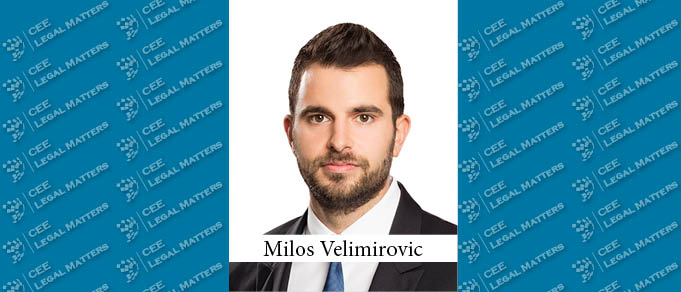Milos Velimirovic, Partner at Samardzic Oreski & Grbovic in Belgrade, declares that "two things are hot right now in Serbia: the matter of Kosovo and the Parliamentary elections that are in April.“
Velimirovic feels that the matter of Kosovo is likely to reach a quick solution, now that “the USA getting involved in a more active manner.“ According to him, “I think we can expect some sort of a concrete move from them before their general elections this November which will help clear the air here.“
As for Serbia's Parliamentary elections, Velimirovic says that he believes “that the current government will keep its position of power and will continue along the lines of their rule so far – which will also allow the economy to grow as planned and predicted. On the other hand, there are likely going to be some changes to its cabinet and personnel members.“ He believes that these changes will likely reflect a more eco-aware stance that the government, like the region as a whole, has been expressing recently. “This will also be in accordance with the international obligations Serbia has undertaken in recent years.“
“However, maybe even more important than Kosovo and the elections are infrastructure investments, the gray economy, and the waves of migrations,“ Velimirovic says wearily. “Especially when it comes to migration – these waves have been the most serious in the past few decades.“ Serbia, of course, has significant experience on this front, particularly with the refugees flocking to the country following the Yugoslav wars in the 1990s.
Velimirovic reports that Serbia’s financial position is “rather good“ and that public spending is “at the same level as some more developed economies have – what we lack here are public investments that could divert this capital to something more valuable.“ According to him, in part of because of the lack of developed financial products and capital market, the country's real estate sector is among the most active at the moment. “In developed economies, excess capital flows into businesses, but in less developed ones it finds its way into real estate – which is what we’re experiencing here.“
Velimirovic reports that the process of harmonizing Serbia's legislation with the EU's Payment Services Directive will start soon. “This can open doors to a crowdfunding perspective when it comes to investments,“ he says, “but it still won’t necessarily mean drastic changes. Simply having a framework in place doesn’t mean that market reality will follow suit."
Additionally, Velimirovic reports that “a new set of laws related to investment funds – the Investment Fund Act and the Alternative Investment Fund Act – will harmonize our legal framework with that of the EU.“ He states that further regulations designed to help make these acts practically useful are currently being drafted and that they should ready the field for “new investments coming in on all sorts of levels – Venture Capital, Private Equity, and the like.“




